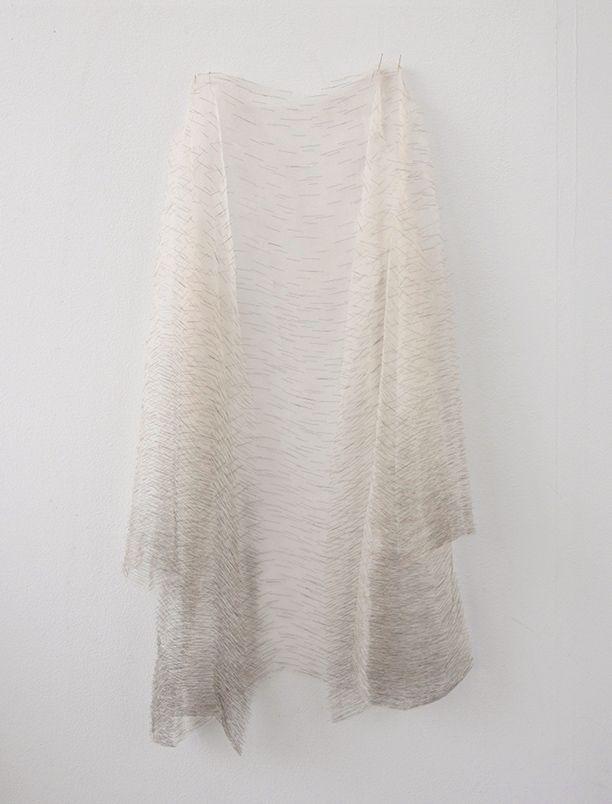In the weeks after the conceptual artist Doris Salcedo unveiled her new commission at the Glenstone museum, a work that reflects on mothers impacted by gun violence in the US, the country’s lawmakers took steps forwards and backwards on gun control.
On 25 June, President Joe Biden signed a bill expanding background checks and other incremental measures into law. Two days earlier, the Supreme Court struck down a New York law restricting citizens’ ability to carry guns in public. In the previous month, following the elementary school massacre in Uvalde, Texas—where, on 25 May, 18-year-old Salvador Ramos executed 19 students and two teachers—there were more than 70 mass shootings nationwide.
“Each time we experience a massacre, we suddenly remember past massacres but have already forgotten what these families endured, and it’s that very forgetfulness that these pieces address,” Salcedo says of her four-part work, Disremembered X (2020/2021), a series of gauzy raw silk sculptures that resemble spectral shawls or coats currently on show at Glenstone in Potomac, Maryland. Each is pierced with between 12,000 and 15,000 sewing needles that were cut, re-sharpened, twisted and burned before being embedded into the fabric. “They are like ghosts in that they are almost not entirely there because the process of forgetting has already taken place,” she says.
The title of the work is based on a word Toni Morrison used in her 1987 novel, Beloved, which implies the act of wilfully forgetting past events that continue to haunt the present. Salcedo interviewed hundreds of mothers across the US but particularly in Chicago, where gun deaths reached a 25-year high in 2021. “When you lose a parent, you’re called an orphan, but the grief mothers feel is something we are not even able to name,” Salcedo says. “One woman told me that she was afraid of Alzheimer’s because she would forget her son. It’s a mourning that is happening daily even after the media attention has disappeared—these parents have breakfast alone, they eat lunch alone, they have to live in an empty house and force themselves to work and try to forget despite this relentless pain.”

An installation view of Doris Salcedo’s Disremembered X (2020/21) © Doris Salcedo. Photo: Oscar Monsalve
The Bogotá-based Colombian artist often addresses war and violence in her practice. In Fragmentos (2018), Salcedo melted down 38 tonnes of weapons forfeited by the Revolutionary Armed Forces of Colombia after the 2016 peace deal. Working with victims of sexual violence during the war, the artist recast the weapons as tiles that were used for the floor of the Bogotá museum Fragmentos, Espacio de Arte y Memoria, creating what she called an “anti-monument”.
“Hannah Arendt said in 1963 that civil war rages all over the world, and I think she was right then,” Salcedo says. “When innocent civilians are dying—when a child or person can be murdered as though they were an enemy terrorist—then war doesn’t have to be declared, and the frontier between soldiers and civilians is erased. You don’t know where normal life begins and ends, and that’s the definition of civil war.”

























